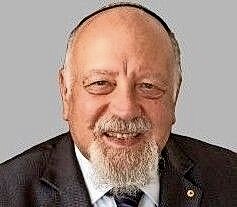From an old man, find wisdom but not the future
Our parsha, Vayechi, opens by telling us an important story with universal implications.
When Jacob was on his deathbed all his children wanted to know how the future was likely to turn out, and the dying man — as a prophet — was willing to tell them what he knew. At that moment, say the rabbis, the picture of the future was taken away from the patriarch.
It’s an allegory of life. We all yearn for knowledge of the future but G-d tells us it’s better that we shouldn’t know too much.
If we knew that the future would be evil, we would give up trying, because nothing would change the picture.
If we knew that things would turn out to be good, we would probably also give up trying because the picture would be good regardless of our efforts.
Until Shiloh comes
Judah will bear rule for a lengthy period (Gen. 49:10), “until Shiloh comes.”
The word Shiloh is difficult. Maybe it is geographical. Rashi says the reference to Shiloh alludes to the belief in the Mashiach, who will replace Judah as the leader in due course.
Rashbam thinks it alludes to King Solomon, whose royal sway was broad and enduring (I Kings 5:4). Possibly Shiloh links to a root that means son or issue, and hence the verse means that Judah will rule as long as humanity lasts.
Ramban (Nachmanides) links the word with “kingship,” ie “as long as there exists rulership in Israel.”
The Scottish Machpelah
A passage in this week’s reading, Chapter 49 of Bereshit, spells out the funeral arrangements at the burial place of the patriarchs, a holy site in or near Hebron named Machpelah. We have already (in B’reshit Chapter 23) read the story of how the family acquired the site after the death of Sarah.
Colloquially some people tend to use the phrase “Morris and MacPelah” as if it were a Scottish or Irish phrase, but the correct words are “Me’arat Machpelah,” the Machpelah cave.
The name Machpelah means “double” (from the root “k-p-l”), perhaps because the cave had two sections (Ibn Ezra), or perhaps because the patriarchs and their wives (maybe also Adam and Eve) are buried there (Rashi on Gen. 23:2). Rachel was not interred there since she died on a journey, but Leah was (verse 31).
Esau was not regarded as having any claim to the site (Nachmanides) though according to mystical lore his head rolled into the cave.

 51.0°,
Overcast
51.0°,
Overcast 




